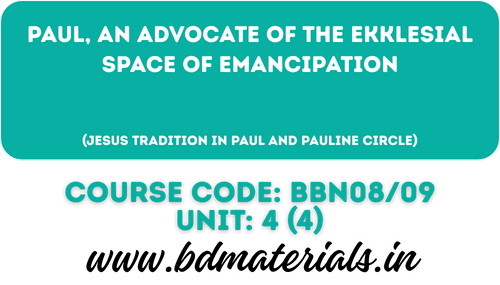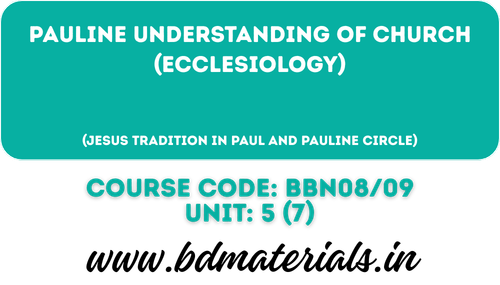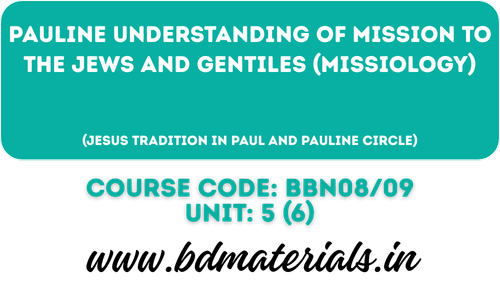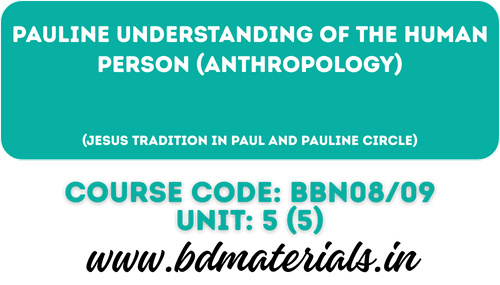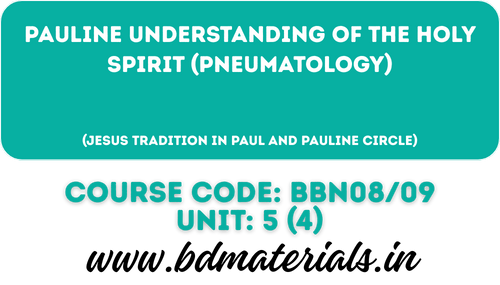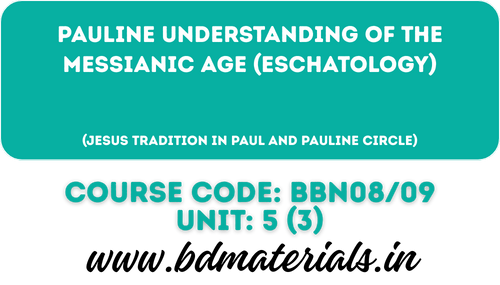Paul, an advocate of the ekklesial space of emancipation
Introduction
Church bears immense significance in terms of spread of beliefs of Christianity and falls under such an imperative category that it is proves to be impossible to lean about the Son of God. St. Paul has done deep study on exploring the relationship between church and the religion. He came across one reality of believers that believed to have a community of believers with particular specialty and spiritual identity. The identity of Christ is indeed a mystery that cannot be understood. In the same way, the association of church with the Son of God is also a mystery and falls under ac complete comprehension. In this paper we are going to discuss about Paul, an advocate of the ecclesial space of emancipation.
1. Paul and his background
Paul, the apostle was the greatest of the early Christian missionaries. Paul was a Galilean by birth.1 His parents lived in Gischala (modern Jish), a village in the mountains of Upper Galilee that was fame for the quality of its olive oil. Paul He first appears in the Bible (Acts of Apostles) under the name of Saul. Saul was raised in the Jewish faith as a Pharisee trained in the strict observance of God’s Law. While his journey to Damascus to persecute early Christians, he had an encounter with the risen Jesus Christ. As a result of this encounter Saul became a follower of Christ. He was now convinced that fellowship with the risen Jesus Christ, not the observance of the Law, was all that was needed to receive God’s promise of salvation. (Galatians 1:11–12; 3:1–5).
Saul, whose name now became Paul, went to Jerusalem to consult wi2th Peter (Galatians 1: 18). After his first missionary journeys, Paul was called by Jesus to proclaim the Gospel to the Gentiles. He spent the rest of his life journeying on his missions, establishing local churches, and writing to them when he heard of their accomplishments and failures. Paul’s letters are the earliest records of the life and history of the early Church. As inspired by the Holy Spirit Paul’s letters are part of the Canon of the New Testament. As a record of the happenings in the early Church they are in invaluable record of the expansion of the Christianity.1
1.1 Paul and His writings
Overall, there are 13 epistles that bear Paul’s name as the author. However, scholars do not believe that he wrote them all. Paul himself was the author of first and second Thessalonians, Galatians, Philippians, first and second Corinthians, Romans, and Philemon. The epistles to the Ephesians, Colossians, Titus, and first and second Timothy bear Paul’s name, but it is believed that they were written after his death. The writers of these letters were disciples of Paul who wanted to continue his teaching. Whoever the authors of these epistles were, these writings have been accepted into the New Testament as inspired by the Holy Spirit.2
2. Pauline Ecclesiology
Ekklesia is the term generally understood and signifies the new people of God called into existence by the event of Christ. Literally, the ekklesia means “the called out” or “the assembled”. It derived from a Greek compound ek, meaning “out of or from” and kalein, meaning “to call”. The word was employed in secular Greek to express this literal meaning of assemblage, especially to denote a gathering of people for political purposes. The Greek word used in Greek text for the English word that is translated as Church is Ekklesia. Of 114 instances of ekklesia in the New Testament, The term ekklesia is used 58 times in Pauline Letters: Romans-5; I and II Corinthians-36; Galatians-3; Ephesians-9; Philippians-1; I and II Thessalonians-3; and Philemon-1.3
God is the center for Pauline understanding for the origin of the Church. Firstly, it is the call of God. The Corinthians are called into God’s convocation, ekklesia, through an invitation and command apart from natural abilities or predilections. God’s call transcends human status (I Cor 1:26), exceeds human strength (1:25), and confounds human wisdom (1:18). It is call that reverses all human forms, for it is based not on the persuasiveness of human rhetoric but on the preaching of the cross.
Church is also understood as the chosen people by the God for his glory (Eph1:3-14). After saying that the Christ is the head of the church, the church is said to be “the fullness of the one who fills all things” (Eph 1:23). Here the church receives is fullness from God, Christ and the Spirit (Eph 3:19; 4:10; 5:18). The power of the church is not inherent but comes from God himself, who has filled the church on the basis of Christ’s death, resurrection and exaltation. It is through the church that the wisdom of the God is displayed (Eph 3:10). The church enshrined God’s plan for history, revealing to all creation the wisdom and depth of God’s saving plan. Church is the locus of God’s glory because it is the theater in which God displays his grace and love. It declares that the history is not arbitrary but fulfilling God’s plan.4
2.1 Two principle aspects in Pauline understanding of the church
In all that has been said of the redemptive work of God in Christ, the church has continually been included. Church does not first came into view as a gathering of individual believers who have come to participate in the gift of Christ and the Holy Spirit rather it has an a priori significance, namely as the people that in his saving activity. This central and integral significance which Paul ascribes to the church in all his proclamation of redemption appears especially from the two principle points of view from which he considers the church in the first place, the church is the continuation and fulfillment of the historical people of God to whom He found himself by making the covenant and the Promises. In the second place, he gives his own form of expression to the real being and character of the church when he speaks of it as the body of Christ. In the first the redemptive-historical aspect of the church predominates, and in the second the Christological. In both the salvation given in Christ bears a corporate character, and is given and received only in the fellowship of the people chosen and called by God to himself and of the one body of Christ.5
2.2 Gentile emancipation
It is impossible to understand Paul’s role in particular or the Jesus movement’s mission to the gentiles in general without some investigation of the status of the gentiles and of proselytism in first century Judaism. n addition to proselytes — gentiles who had received circumcision and were accepted as Jews — there were also the “God-fearers,” gentiles who were attracted to Judaism but had not undergone circumcision. Although “God-fearers” is clearly an inexact term, there is ample evidence of the existence of gentiles who had a religious interest in Judaism but did not fully convert. Certain minimal requirements would have been expected of gentiles who wished to be closely associated with Judaism. In the later rabbinic tradition, there were seven moral obligations, known as the Noachide laws, that were considered incumbent upon all of humanity.
Although some gentiles were clearly attracted to Judaism, the extent to which Jews openly sought out such converts is unclear. According to Alan F. Segal, “different Jews and different Jewish sects reached different opinions about proselytism and behaved accordingly.” Some Jews thought hat allowing the uncircumcised to participate in worship delayed the coming of the messiah, and one scribe wrote that “the Sabbath keepers who are not circumcised are intruders and deserve punishment.”. Some wanted gentiles to convert while others were content that they recognized the God of Israel and embraced his moral laws.
According to Romans 11:13, the Apostle Paul calls himself “…an apostle to the Gentiles”. The Apostle Paul at times preached to Jews especially when he entered a new city, and he preached in synogues (Acts 17: 2). The other apostles also preached to the Gentiles. However, it should be noted that the Apostle Paul’s ministry was unique and special. In Romans 15: 15-16, Paul states “15Yet I have written to you quite boldly on some points to remind you of them again, because of the grace God gave me 16to be a minister of Christ Jesus to the Gentiles. He gave me the priestly duty of proclaiming the gospel of God so that the Gentiles might become an offering acceptable to God, sanctified by the Holy Spirit.” During the Apostle Paul’s court According to Romans 11:13, the Apostle Paul calls himself “…an apostle to the Gentiles”. The Apostle Paul at times preached to Jews especially when he entered a new city, and he preached in synogues (Acts 17: 2). The other apostles also preached to the Gentiles. However, it should be noted that the Apostle Paul’s ministry was unique and special. In Romans 15: 15-16, Paul states “Yet I have written to you quite boldly on some points to remind you of them again, because of the grace God gave me to be a minister of Christ Jesus to the Gentiles. He gave me the priestly duty of proclaiming the gospel of God so that the Gentiles might become an offering acceptable to God, sanctified by the Holy Spirit.” During the Apostle Paul’s court case in Caesarea, he used Koine Greek, when speaking to Agrippa and Fetus and this shows us hoe knowledge of the language of the day (Acts 25: 14-22, 26: 1-29) According to Galatians 1: 15-16, the Apostle Paul was set apart since birth and called by the grace of God so he could preach the gospel to the Gentiles.6
2.3 Women emancipation
In general, Pauline passages concerning women can be categorized into three groups: the restricting, the ambiguous, and the affirming. Only one Pauline passage is categorized as restricting: 1 Cor 14:33-36. There is also only one passage in the Pauline letters that falls into the ambiguous category: 1 Cor 11:2-16. Each of these passages requires its own section for discussion. The affirming includes statements that either describe women and men in egalitarian terms, or that recognize specific women as leaders within the church. Yet in Gal 3:28, Paul claims “(there) is no longer Jew or Greek, there is no longer slave or free, there is no longer male and female; for all of you are one in Christ Jesus”.
The passages that recognize women as leaders within the church are found in several letters (Rom 16; 1 Cor 1:11,16:19; Phile 2; Phil 4:3). In these passages, Paul thanks individual women for their service, and he refers to them as ‘coworker,’ ‘deacon,’ ‘fellow prisoner,’ and even ‘apostles’. It is noteworthy that in Rom 16, Paul recognizes, by name, 25 people—8 of which are women; it is counter-cultural that women were recognized in this fashion.
Galatians 3:28 is arguably the most pivotal of all statements Paul makes. When writing to the church in Galatia, Paul is dealing with some amount of controversy. The Jews and Gentiles are disputing over whether or not the Gentiles need to follow the Law as laid out in the Hebrew Bible. Paul claims that Gentiles need not adhere to the Law, because faith is greater than works, and through Jesus, they are freed from the Law. At the peak of his argument, Paul reminds the Galatians, “As many of you as were baptized into Christ have clothed yourselves with Christ. There is no longer Jew or Greek, there is no longer slave or free, there is no longer male and female; for all of you are one in Christ Jesus. And if you belong to Christ, then you are Abraham’s offspring, heirs according to the promise.” Paul concludes that baptism removes all societal labels: race, ethnicity, status, and even gender. The implications of Gal 3:28 were huge. Here, we have Paul explicitly erasing societal boundaries.
Women played an integral part in Pauline communities. This is evidenced throughout Pauline literature, particularly toward the end of Romans, where out of 25 names mentioned, ten women are recognized, and eight by name. The women participating in Paul’s ministry were not restricted to traditional gender roles, but were opening their houses to host churches, preaching and prophesying and making significant contributions to the first-century church.
Women’s roles in Paul’s churches have been obscured through translation and cultural bias. As evidenced in the cases above, Phoebe’s role is diminished as she is called a ‘servant’ and ‘helper’ rather than her proper titles of ‘deacon’ and ‘patron’. Junia’s name is changed to reflect that of a man’s. Instead of these stories concerning leading female figures, the language of the deutero-Pauline letters dominate today’s discussion of women’s roles in the church.7
2.4 Inclusivism
“The new perspective on Paul,” which essentially says that Paul is not writing against those who think we can earn our salvation through “good works,” but rather against those who think that Jewish ethnic boundary markers are what delimit the people of God. Paul is not worried about people trying to earn their salvation, but rather that some people thought that Gentiles could not come to Christ unless they first became Jews. Paul’s point in Galatians, as I understand it, is not that all barriers have been broken down, but that for those in Christ, the curse of the law, which previously hung over the Gentiles (and indeed, assuming N.T. Wright’s reading of Deuteronomist theology is correct, the Jews too), has been exhausted. The problem was precisely those who, by continuing to insist on the necessity of Jewish boundary markers, were in essence denying that Christ’s death had accomplished anything (cf. 2:21).
It was because they were “in Christ” that the curse of the Law held no danger to them, even though they remained uncircumcised. Thus, 5:6 says “neither circumcision nor un circumcision has any value. The only thing that counts is faith expressing itself through love,” it must not be ignored how Paul introduces this: “For in Christ Jesus neither circumcision…” (Emphasis added). The same is true of Paul’s striking claim in 3:28 that “There is neither Jew nor Greek, slave nor free, male nor female,” for he immediately completes the thought like this: “for you are all one in Christ Jesus. If you belong to Christ you are Abraham’s seed and heirs according to the promise” (3:28-29; emphasis added).8
Reflection & Conclusion
Pauline understanding of the church is wide in its deepest meaning and still there are arguments among the scholars about the limitation the usage of the term. There are also few scholars who neglect the Pauline emphasis on the Church, because he was a convert who had a direct encounter with God, rather than converted by the proclamation of the Gospel by Church of his time. His concept of church is always related to Trinitarian role of God and never gone outside God’s own desire for it. He established the eschatological importance of the church through his epistles and its organization and gifts within it for the glory of God. Church has replaced the role of Israel as divine appointed and Spirit filled community.
Paul was a leader in a radical movement that directly challenged the social norms of the day. When the baptismal creed “no longer male and female” was spoken, it threatened the social structure of the Roman government, and people like Jesus and Paul were killed probably for supporting such beliefs. The opposition of the surrounding society is what directed the church in a trajectory toward excluding women from leadership roles. The New Testament clearly depicts these two differing stances on women’s roles in society.
Gentile Christians, especially those who had no prior experience of Judaism, probably did not understand the depth of feeling over the circumcision issue. They may have simply practiced toleration of other believers and left it up to the conscience of the individual, as Paul advised the congregations in Corinth and Rome (1 Cor.8; Rom. 14). There were possibly some congregations that were strongholds for either the pro-observance view or the radically law- free view while others contained members of each persuasion and from intermediary points on the continuum. Paul’s attitude toward the law ought to be seen in the context of the passing away of the old order, represented by the flesh, and the ushering in of the new order of the spirit: “For neither is circumcision anything, nor un circumcision, but a new creation” (Gal. 6.15). Paul apparently practiced the ritual law when doing so was advantageous to the progress of his mission, but the obvious interpretation of his statements about not being personally under the law (1 Cor. 6.12, 8.7-8; Gal. 5.11,18; Rom. 7.6) is that he did not observe the law when among gentiles.
Bibliography
Behera, Anugraha The People of God-The New Israel, Studies in the New Testament Kolkotta: Sourjya Printers, 2007
Medinas, Kathryn From equality to exclusion: women’s roles in the first-century church NC: Greenville,2016
Reddy, Mike Megrove The Pauline methodology of communicating the Word to a gentile audience South Africa; University of Zululand,2021
Riddersbos, Herman Paul: An Outline of His Theology, trans., by John Richard de Witt Grand Rapids: Wm. B. Eerdmans Publishing Company, 1975.
Schnelle, Udo Apostle Paul: His Life and Theology Grand Rapids: Bakers Academic, 2003
Webliography
https://corthodoxy.wordpress.com/2008/02/23/inclusivism-and-the-new-perspective-on-paul/ accessed on 29 March 2021
https://www.loyolapress.com/catholic-resources/saints/saints-stories-for-all-ages/the-conversion-of-saint-paul-the-apostle/ accessed on 25 February 2022.
Murphy-O’Connor, Jerome Paul His story New york ; Oxford university Press ,2004 https://www.loyolapress.com/catholic-resources/saints/saints-stories-for-all-ages/the-conversion-of-saint-paul-the-apostle/
Footnotes
- Jerome Murphy-O’Connor, Paul His story(Newyork ;Oxford university Press ,2004),25-27 https://www.loyolapress.com/catholic-resources/saints/saints-stories-for-all-ages/the-conversion-of-saint-paul-the-apostle/
- https://www.loyolapress.com/catholic-resources/saints/saints-stories-for-all-ages/the-conversion-of-saint-paul-the-apostle/ accessed on 25 february 2022
- Anugraha Behera, The People of God-The New Israel, Studies in the New Testament for B.D./B.Th. Degrees (Kolkotta: Sourjya Printers, 2007), 14.
- Udo Schnelle, Apostle Paul: His Life and Theology (Grand Rapids: Bakers Academic, 2003), 560.
- Herman Riddersbos, Paul: An Outline of His Theology, trans., by John Richard de Witt (Grand Rapids: Wm. B. Eerdmans Publishing Company, 1975), 327.
- Mike Megrove Reddy, The Pauline methodology of communicating the Word to a gentile audience ( South Africa; University of Zululand,2021)2
- Kathryn Medinas, From equality to exclusion: women’s roles in the first-century church (NC:Greenville,2016),16-30.
- https://corthodoxy.wordpress.com/2008/02/23/inclusivism-and-the-new-perspective-on-paul/ accessed on 29 March 2021.
Friendly Note
Greetings in the name of our Lord Jesus Christ! We are deeply thankful for your visit to BD Materials. It is our mission and joy to serve Bible students, pastors, and believers with high-quality theological resources that strengthen faith and understanding of God’s Word.
At BD Materials, you’ll find study notes, articles, question papers, and valuable academic content designed to support your biblical and theological education. We are dedicated to helping you grow in knowledge, ministry, and devotion to Christ.
We also invite you to explore our partner sites: Telugu Gospel Lyrics, featuring inspiring gospel song lyrics in Telugu, and Theological Library, a hub for Christian book summaries and devotionals.
Your encouragement means a lot to us! We invite you to share your study materials, articles, or insights with our community. Thank you for being part of this mission—may God bless your studies and ministry abundantly!
